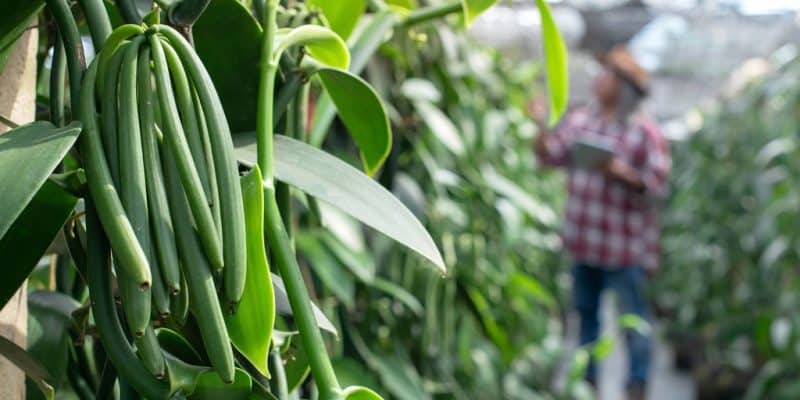With agricultural expansion threatening half of its tropical rainforests, Madagascar will benefit from a sustainable vanilla supply chain from 2023, as will seven Indian Ocean countries. The project, led by agribusiness company Agri Resources, is supported by several development partners to preserve the environment and improve the living conditions of local farmers.
Although Madagascar is the world’s leading supplier of vanilla with a production of 2,000 tonnes in 2019, the cultivation of this spice poses problems for nature with regard to the cutting of forest wood by farmers, particularly in the rural commune of Antalaha. In this context of deforestation and drought, the Mauritian company Agri Resources, which specialises in the production and export of vanilla, recently concluded a partnership with the Indian Ocean Sustainable Development Assises(ADD-OI) with a view to “developing a sustainable vanilla supply chain”.
The initiative supported by the United Nations Development Programme (UNDP) will be implemented in eight islands and archipelagos of the Indian Ocean such as Madagascar, Mayotte, Comoros, Mauritius, Seychelles, Reunion, Maldives and Zanzibar (Tanzania) in partnership with Morocco, the United Arab Emirates (UAE) and India as partner countries.
At a total cost of €8.5 million, projects will develop agroforestry to protect the fauna and flora in the territories where the vanilla tree flourishes, and promote job creation for local communities by 2023. “We will join forces with partners who are willing to accompany us in limiting the impact of our activities on the environment as well as on the communities,” says Shalina Dhallapah, the director of Agri Resources in Mauritius.
Other financial partners will also support sustainable vanilla farming. These include the African Development Bank (AfDB), the International Fund for Agricultural Development (IFAD) and the International Finance Corporation (IFC), the World Bank Group’s private sector financing arm.
Read also-MADAGASCAR: fires ravage the Ankaratra reserve
In February 2021, the World Bank, through the Forest Carbon Partnership Facility (FCPF), released US$50 million to Madagascar. This specific support aims to reduce emissions from deforestation and forest degradation, conserve forest carbon stocks and promote the sustainable management of rainforests in the east of the archipelago. Ultimately, the project will increase agricultural productivity on 7 million hectares of land and reduce rural poverty while improving soil quality and conserving water resources.
Benoit-Ivan Wansi






